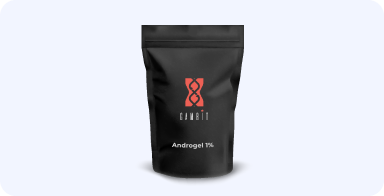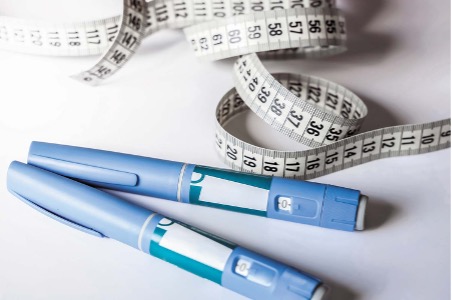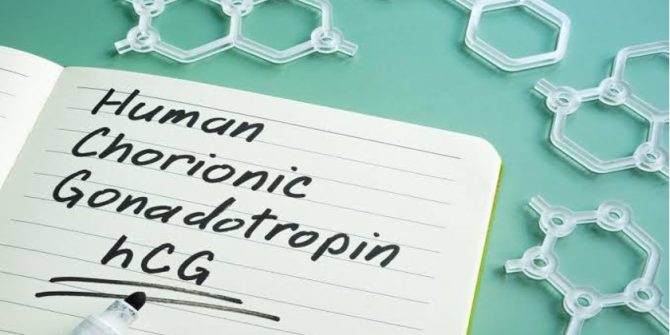Testosterone is an essential hormone in a man’s body, playing a key role in everything from muscle mass to libido to mood. But as men age, testosterone levels can naturally...
Home page / Testosterone Cypionate Injection

The product images shown are for illustration purposes only and may not be an exact representation of the product.
Testosterone Cypionate Injection
Testosterone cypionate is a synthetic long-acting form of testosterone that is administered by injection into the muscle. It is indicated for use in patients experiencing hypogonadism (low testosterone). When testosterone cypionate is injected, it is slowly released into the bloodstream and is gradually converted into the active hormone testosterone. Testosterone is responsible for the development and maintenance of male characteristics, such as muscle mass and strength, body hair, and a deep voice. It also plays a role in regulating mood, energy levels, and sex drive.
In men with low testosterone levels, testosterone cypionate can help increase testosterone levels.
Start your visit to get testosterone cypionate today.
When testosterone cypionate is administered into the body, it replaces the testosterone that is released by your testes, coining the name “Testosterone Replacement Therapy”. This allows the testosterone levels to be restored to an optimal level and alleviate symptoms associated with hypogonadism.
Testosterone Cypionate binds to the same receptors that natural testosterone does, which means it has the same effects as the testosterone your body naturally produces.
Determining the appropriate dosage of testosterone cypionate involves ongoing evaluation of your hormone levels, symptoms, and overall health. Routine bloodwork helps pinpoint whether adjustments are necessary to achieve balanced testosterone levels and reduce the risk of side effects. With these lab results and with a deep consideration for how you feel on treatment, Get Gambit’s licensed practitioners can tailor your dosage to ensure you’re receiving the most effective and safest amount, supporting both your immediate well-being and long-term health goals on TRT.
Consistent Hormone Levels for Better Health.
This injection provides a slow, consistent release of testosterone, helping maintain stable hormone levels. It can improve energy, mood, and overall well-being, making it a trusted option for long-term balance.
Proven Long-Term Efficacy and Convenience
With injections needed only every 1-2 weeks, this therapy is both effective and time-efficient. It supports muscle growth, bone health, and libido, fitting easily into a busy lifestyle.
Why Testosterone Cypionate?
Consistent Hormone Levels for Better Health
This injection provides a slow, consistent release of testosterone, helping maintain stable hormone levels. It can improve energy, mood, and overall well-being, making it a trusted option for long-term balance.

Consistent Hormone Levels for Better Health
With injections needed only every week, this therapy is both effective and time-efficient. It supports muscle growth, bone health, and libido, fitting easily into a busy lifestyle.
How does it work?
How do I know how much testosterone cypionate to use?
Testosterone Cypionate
For Patients
Access a variety of resources and tools designed for your healthcare needs.
Testosterone Cypionate is a long-acting injectable testosterone replacement therapy (TRT) used to treat low testosterone levels (hypogonadism) in men. Administered intramuscularly, it provides a steady release of testosterone to restore hormonal balance and alleviate symptoms of low testosterone. At Get Gambit, we offer medically supervised Testosterone Cypionate therapy tailored to meet your individual health goals.
Testosterone Cypionate is prescribed for:
- Hormone therapy: To address symptoms of hypogonadism, such as fatigue, low libido, muscle loss, and mood changes.
- Enhancing well-being: By normalizing testosterone levels, it can boost energy, physical performance, and mental clarity.
At Get Gambit, our healthcare providers develop personalized TRT plans to support your overall health and vitality.
Testosterone Cypionate is injected into the muscle, where it is gradually absorbed into the bloodstream. This slow release helps:
- Restore and maintain testosterone levels over time.
- Improve energy, libido, and mood.
- Enhance muscle mass, bone density, and overall health.
| Feature | HCG | Testosterone Enanthate | Testosterone Cypionate | Testosterone Gel 1% |
| Form | Injectable (subcutaneous) | Injectable (intramuscular) | Injectable (intramuscular) | Topical gel |
| Administration | 2–3 times weekly | Weekly or biweekly injection | Weekly or biweekly injection | Daily application to the skin |
| Mechanism of Action | Stimulates natural testosterone and sperm production | Provides exogenous testosterone | Provides exogenous testosterone | Provides exogenous testosterone |
| Primary Use | Boost natural testosterone and fertility | Replace testosterone levels | Replace testosterone levels | Replace testosterone levels |
| Absorption Rate | Rapid action after injection | Slow, long-acting release | Slow, long-acting release | Gradual, steady daily release |
| Side Effects | Injection site irritation, headaches, mood swings | Injection site pain, acne, mood changes | Injection site pain, acne, mood changes | Skin irritation, acne, mood changes |
| Monitoring Requirements | Regular blood tests for testosterone, estradiol, and LH | Regular blood tests for testosterone levels | Regular blood tests for testosterone levels | Regular blood tests for testosterone levels |
| Best For | Men seeking fertility preservation or enhanced natural testosterone production | Men seeking higher peak testosterone with less frequent dosing | Men seeking higher peak testosterone with less frequent dosing | Men preferring non-invasive treatment |
Yes, Testosterone Cypionate is safe when prescribed and monitored by licensed healthcare providers. At Get Gambit, we ensure your safety by:
- Conducting comprehensive health assessments and blood work.
- Monitoring your progress with regular follow-ups and adjusting your treatment as needed.
Improper or unsupervised use of testosterone therapy can pose risks, so it’s essential to follow your healthcare provider’s instructions.
Common side effects may include:
- Injection site pain or swelling.
- Acne or oily skin.
- Mood swings or irritability.
- Water retention or bloating.
Rare but serious side effects include:
- Elevated red blood cell count.
- Sleep apnea.
- Prostate changes (requires regular monitoring).
If you experience severe or persistent symptoms, contact Get Gambit’s medical team immediately at support@getgambit.ca.
Stopping Testosterone Cypionate may cause testosterone levels to return to baseline, leading to:
- Fatigue and low energy.
- Decreased libido.
- Mood swings or irritability.
Before stopping, consult Get Gambit’s medical team to develop a safe plan to transition off therapy.
Testosterone Cypionate is administered via intramuscular injection, typically into the gluteal muscle. At Get Gambit, we provide:
- Step-by-step training on proper injection techniques.
- A personalized dosing schedule tailored to your health needs and goals.
Yes, Testosterone Cypionate is a prescription medication. At Get Gambit, we ensure safe and effective treatment by:
- Conducting lab tests to evaluate your hormone levels.
- Reviewing your detailed medical history.
- Providing ongoing monitoring to optimize your therapy.
Testosterone Cypionate may not be suitable for individuals with:
- Prostate or breast cancer.
- Severe heart, liver, or kidney conditions.
- Elevated red blood cell counts.
It’s essential to share your full medical history with Get Gambit’s healthcare providers to ensure this therapy is right for you.
Store Testosterone Cypionate at room temperature between 20°C and 25°C (68°F and 77°F). Keep it in its original container, away from excessive heat, light, and moisture, and out of reach of children.
If you miss a dose of Testosterone Cypionate:
- Contact Get Gambit’s medical team at support@getgambit.ca for guidance.
- Do not double the dose unless specifically instructed by your healthcare provider.
Getting started with Testosterone Cypionate at Get Gambit is simple:
- Complete a quick online intake form.
- Connect with licensed healthcare providers for a personalized consultation.
- Receive a tailored treatment plan, including guidance on proper injection techniques.
Contact us at support@getgambit.ca to schedule your consultation today.
We’re here to help! Contact us at support@getgambit.ca or visit our Contact Us page to learn more about how Testosterone Cypionate treatments at Get Gambit can improve your health and quality of life.
What our customers say about us
Trustindex verifies that the original source of the review is Google. Highest level knowledge and patient service. So professional and 15/10 best medical staff and health knowledge. Thank you Gambit changes lives!Trustindex verifies that the original source of the review is Google. Awesome service. Quick to help and very well informed. 100% reccomend their services.Trustindex verifies that the original source of the review is Google. I will be 50 in a couple of months and found my energy to be declining even though I have not changed much to my sleep, diet and exercise routine. I have had the priviledge of working with Eric and Abdel and they are so awesome! The attention to detail with my program is amazing and they made me feel so comfortable through the whole process. I would highly recommend any man wanting to help increase their energy to contact Abdel or Eric at Get Gambit to help.Trustindex verifies that the original source of the review is Google. Really innovative and convenient way to personalized men's health. It has been a seamless process so far and I look forward to working with the Get Gambit Team!Trustindex verifies that the original source of the review is Google. Trustindex verifies that the original source of the review is Google. Best team ever, they helped me lose weight and the care I received was amazing.Trustindex verifies that the original source of the review is Google. Great service and follow up!!!Trustindex verifies that the original source of the review is Google. amazing simply amazing. i have never been met with a more professional well planned company who truly cares for the benefit and well being of their clients. i have been met with nothing but respect and courtesy from the agents and management team i highly recommend!Trustindex verifies that the original source of the review is Google. Took a long time to find this kind of care DR Hatem Salim and his great team makes everything easy there on time with every prescription and the real Bonus is they always answer the phone always polite and very informative thankyou Dr Salim and team cheers 🍻
Important Safety Information
Important Safety Information
Testosterone Cypionate is an injectable solution used to treat low testosterone levels in men. It is not recommended for women, children under 18, or individuals with certain medical conditions. Speak to your doctor to determine if this treatment is right for you.
Gambit Health Hub
For many women, weight loss is not just about numbers on a scale. It’s about looking healthy, having more energy, and building more confidence in your looks. While diet and...
What is Hypogonadism? Hypogonadism is a common condition, affecting 38% of men over the age of 45 and 7% of men under the age of 40. Hypogonadism is when the...
Other products









